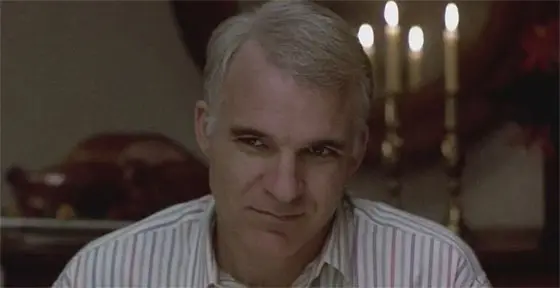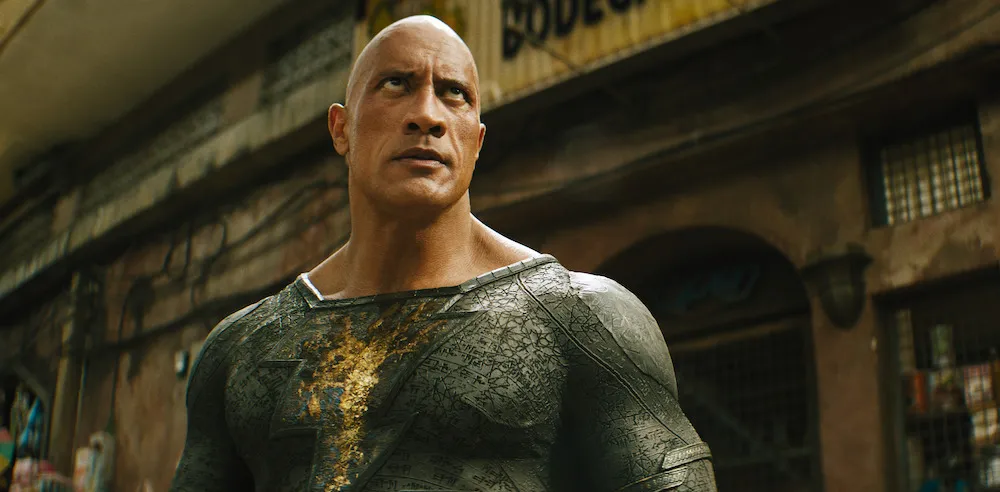 If imitation is truly the most sincere form of flattery, then Planes, Trains, and Automobiles may well be among the most flattered comedies of all time.
If imitation is truly the most sincere form of flattery, then Planes, Trains, and Automobiles may well be among the most flattered comedies of all time.
Chris Farley and David Spade struck gold with a similar format with Tommy Boy. Robert Downey, Jr. and Zach Galifanakis made a go of the road movie comedy in Due Date last year with great success.
And yet, in the grand scheme of things, they are little more than faint echoes of the 1987 film from writer-director John Hughes and stars Steve Martin and John Candy.
The movie follows Neal Page (Martin) and Del Griffith (Candy), two men who are thrown together by coincidence and circumstance while trying to get back home to Chicago from New York for Thanksgiving. En route, they’re faced with delayed flights, broken-down trains, and rental cars engulfed by flames.
All of those issues are compounded by the fact that Del’s talkative, folksy anecdotes and Neal’s irritable nature don’t exactly coexist peacefully.
Now then, how can a movie with a plot so seemingly-shallow stand head-and-shoulders above its latter day counterparts? After all, I basically just summed up the entire gist of the movie in two paragraphs that total 70 words.
To some (and this is a perfectly justifiable opinion), a road comedy is a road comedy is a road comedy. There’s not much pay dirt to mine from in that particular sub-genre. And, again, that’s fair enough. But what sets Planes, Trains, and Automobiles (PTA from here on out) apart from its highway-traveling brethren lies primarily in its sheer simplicity.
The films that came later had at least some measure sentimental sweetness about them (as does PTA) and a similar plot. But take the plot of Tommy Boy as an example: Tommy has to hit the road to save his recently-deceased father’s business from being sold to a corporate giant while trying to prove that he’s worthy of succeeding his old man all the while earning the respect of the skeptical Richard.
Then there’s PTA: Neal just wants to get home to his family, but Del’s bumbling keeps getting in his way.
Again, this movie derives all of its humor and all of its charm from that one basic concept: Simplicity. It’s been said that in simplicity you will find universality; with a simple but well-executed (and funny) story, you can craft a film that is bother entertaining to and relatable for your audience.
As with all John Hughes films, this movie is incredibly relatable. But as real as the situations are and as completely plausible as some of the more hilarious scenarios come across as being, the film never loses track of the fact that it’s there to make its audience laugh.
And thanks to the combination of Hughes’s words and direction and the performances of Martin and Candy, PTA succeeds admirably.
To a newer or younger viewer, Steve Martin’s performance in PTA would likely seem quite ordinary. Over the course of the last 20 or so years, Martin has made his name as an actor by playing the straight man. At the time the movie was made, though, Martin was just starting to enter this territory, having made his big-screen name on absurdist flicks like The Jerk and The Man with Two Brains. Even Three Amigos and Roxanne, while relatively down-to-earth compared to the former two movies, swing the pendulum slightly toward the absurd.
But here he was, in 1987, playing the straight man – and playing it as an actor rather than a comedian. Neal goes on a literal and figurative journey in this picture, and the man at the end of the movie is not necessarily the same as he was at the beginning. The change is barely noticeable; it’s a character arc that’s handled with great subtlety, and as much as Hughes deserves credit for having crafted such a tight story, Martin deserves equal and perhaps greater credit for bringing it to life.
And while it must also be said that Martin had tried – with varying degrees of success – to make a go of it with slightly more reality-based roles before, this is, in my eyes, the first time he truly took the ball and ran with it. Twenty-four years later, he hasn’t looked back.
Then there’s John Candy. I am, and have always been, a huge John Candy fan. I loved him in The Great Outdoors, Uncle Buck, Stripes, and a host of other flicks. But PTA is hands-down Candy’s finest work.

Once more using the movies that were spawned as a result of PTA as a model, just about anybody with a slight amount of comedic talent can play the part of the quirky, irritating character in a buddy movie. Zach Galifinakis is funny in Due Date; that much is certain.
As with just about everything concerning PTA, however, Candy goes above and beyond the standard. Sure, Del is funny; he’s the equivalent of the wacky neighbor on any given sitcom. But Candy brings real heart and a genuine sweetness to the role that I’m suddenly finding strangely difficult to describe with words.
Take for instance a scene about 20 minutes into the picture where Neal has already had it with Del. Martin issues a loud, angry litany of complaints at his traveling partner; rather than fire back with a pithy remark or a tirade of his own, Candy lets loose with the best monologue of his career.
He stands up for himself, all the while holding back tears of hurt. “I’m not changing,” he tells Neal. “I like me. My wife likes me. My customers like me. Because I’m the genuine article.”
Again, though, as it was with Ferris Bueller’s Day Off, when the smoke clears there is only Mr. Hughes.
This was not John Hughes’s first journey outside the realm of the teen movie, but it definitely stands alone as hits best.
There’s a scene from PTA that comes to mind involving Steve Martin swearing up a blue streak at a rental car counter-jockey in which the F-bomb is dropped 19 F’n times, and it is the funniest moment in a movie chock full of funny moments.
Granted, it was Martin who brought the scene to life. But even as he says the words I found myself wondering, “How hard did Steve Martin laugh at this scene when he was reading it?”
This is a scene that would have been funny even in the hands of a moderately-competent actor, let alone someone with the comedic chops of a Steve Martin. That’s a mark of a truly gifted writer.
As for Hughes’s direction, this movie covers a LOT of ground in 93 minutes and never leaves the viewer gasping for air. The pacing is some of the best I’ve ever seen in any comedy before or since.
My complaints about PTA strictly as a film? Well, the closest thing I have to a complaint is that after the second time Neal degrades Del for jeopardizing his trip before almost immediately forgivable, it became obvious that that was going to happen every time the two found themselves in a jam.
It’s a minor complaint, but it does cost the movie a perfect 10-out-of-10. In the long run, though, that doesn’t matter.
Planes, Trains, and Automobiles is a truly great movie.
High-Def Presentation
Paramount’s presentation of the film on Blu-ray, though? Oh, I’ve got some complaints.
The issues with this movie’s presentation all lie with the picture. To take my cue from the plot’s construction, I’ll issue my complaints rather simply: This movie doesn’t look any better on Blu-ray than it did on DVD.
It’s by no means a bad-looking picture. There’s some softness here and there and some minor artifacting from time-to-time, but it’s nothing huge, and while that isn’t necessarily a bad thing, it’s the same softness and artifacting from the DVD, as far as I can tell. A great movie deserves to look as great as it possibly can, and Paramount short-changed PTA in a big, bad way.
The audio is serviceable if not fantastic. The 5.1 DTS-HD Master Audio track is a lossless transfer that keeps every hilarious line intact. There’s not a lot of ambient noise in the film, but what little there is comes across well. Some of the louder sequences seemed to overload my speakers from time-to-time but never in a terribly-distracting way.

Beyond the Feature
Getting There is Half the Fun (SD, 16:36) – Combining footage from a pre-release press conference (featuring Martin, Candy, and Hughes) and present-day interviews with producers and some of the supporting cast, this feature gives some insights into what made the picture attractive to the actors and crew alike. It’s interesting enough, but ported from the “Those Aren’t Pillows” edition DVD.
John Hughes: Life Moves Pretty Fast – This is a two-part documentary tribute to Hughes, consisting of John Hughes: The Voice of a Generation (HD, 27:39) and Heartbreak and Triumph: The Legacy of John Hughes (HD, 25:52). Each part consists of archival interview footage with Hughes and modern-day interviews with some of the producers and actors (including Jon Cryer, Matthew Broderick, and Lea Thompson) reflecting on what Hughes and his work meant to them. Of particular note is a portion of Heartbreak and Triumph where the interviewees all remark about where they were when they heard about the writer-director’s death in 2009. Equal parts fascinating and touching.
John Hughes for Adults (SD, 4:02) – A (very) brief look at how some of the director’s colleagues feel about Hughes (eternally known for being the voice of teen angst) taking on literally adult subject matter. I felt this was definitely a subject that warranted more than four minutes, but what’s there is entertaining and engaging enough to scratch the itch. Again, this feature is ported from the DVD.
A Tribute to John Candy (SD, 3:01) – Another DVD carryover with PTA cast and crew members discussing Candy’s legacy.
Deleted Scene – “Airplane Food” (SD, 3:24) – One last DVD carryover, this is a pretty funny scene about Neal trying (and failing) to get through an in-flight meal. While not in the theatrical release, this scene was edited into the network television presentation of the film.
Generally-speaking, I felt the bonus features for this movie were lacking, at best. While I wish every movie would carry over its DVD special features over to the Blu-ray, a movie this good and beloved deserved some new material about the movie.
As good as the two-part Hughes retrospective is, it doesn’t excuse the lack of material made exclusively about PTA, even if it is a low cost Best Buy exclusive.
The skimpy amounts of new material compounded with the lackluster picture quality ultimately make the total package something of a dud. Luckily, the movie is good enough to be a must-have in any collection.


